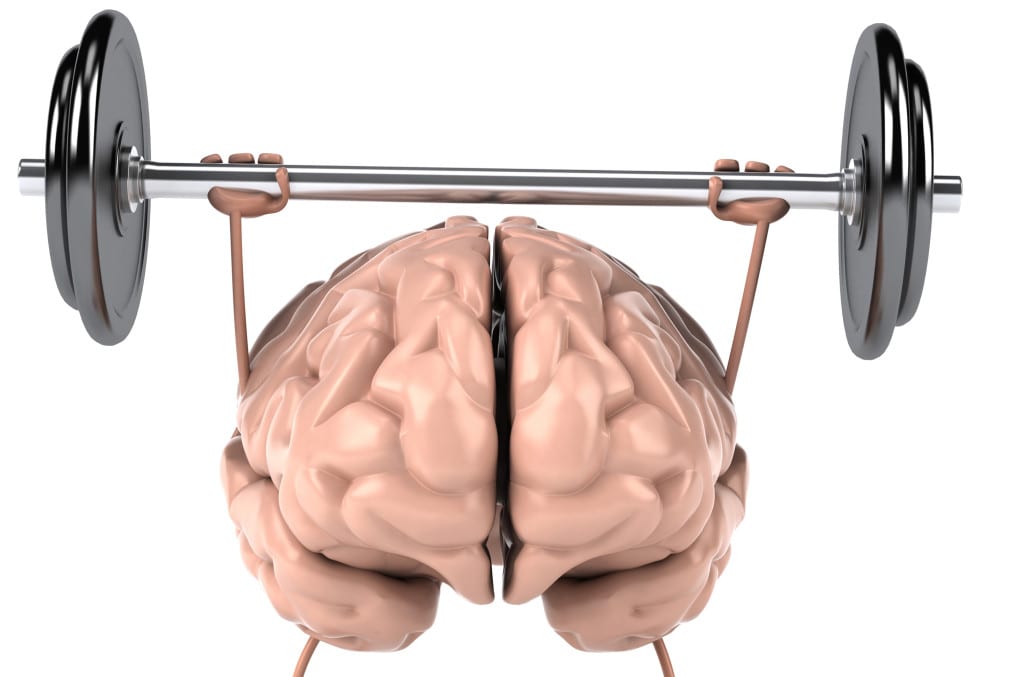Six top tips for a healthy brain
Research has suggested that combining good nutrition with mental, social and physical activities may have a greater benefit in maintaining or improving brain health than any single activity. In line with Dementia Awareness Week
, nutritional therapist Naomi Mead outlines six ways in which you can look after your brain health:
1 Practice meditation
Research has found that meditating regularly can actually change the structure of the brain, and specifically has been shown to increase the amount of grey matter in the brain. Grey matter is associated with emotional stability, ability to deal with stress
, and intelligence. These changes have been observed in studies after just eight weeks of meditation. Regular meditation has also been found to help preserve the brain from ageing, and improve memory. There are plenty of guided meditations available, and group meditation classes can be hugely beneficial for beginners.
2 Keep moving
Exercise is not just fantastic for our physical health: countless studies have shown it’s great for our mood and state of mind, too. Regular exercise has been proven to reduce stress, decrease feelings of anxiety and depression, aid concentration, improve memory and cognitive function, and help sleep. Physical activity can be thought of like a fertiliser for the brain – nourishing it to work more efficiently! Just half an hour of light exercise a day, such as a brisk walk, can help to provide these benefits.
3 Brain training games and puzzles
Your brain is like a muscle; you need to work it regularly to keep it fit. Games and puzzles, such as Sudoku, crosswords, maths puzzles and board games, can provide this exercise and help to keep the brain sharp. Evidence is accumulating that these activities not only improve the skills they are designed to help, but are likely to have some long-lasting benefits on cognition, too.
4 Mediterranean diet
Research into the effect of diet on brain health, and specifically dementia, is still very much in its infancy; but the strongest and most consistent evidence to date is for the potential benefits of adherence to a Mediterranean diet. The traditional Mediterranean diet is high in olive oil, fruit, nuts, vegetables, legumes and wholegrains, with moderate amounts of fish, poultry, eggs and dairy (cheese, milk and yoghurt), and low amounts of red meat, processed foods and sugar. There is a strong emphasis on plant-based foods, and the inclusion of healthy fats in the diet. The Mediterranean diet is considered a whole lifestyle approach, with emphasis also on the importance of the social aspect and enjoyment of eating.
5 Stay well hydrated
If you’re regularly feeling foggy headed, it may be that you’re not drinking enough water. The brain depends on proper hydration to function optimally, and dehydration can impair both short term memory, and the recall of long-term memory. In fact, your brain comprises over 70 per cent water, so for good mental clarity, you should be sipping water steadily throughout the day. Find drinking water a struggle? You can up your water intake through eating more ‘juicy’ foods, such as tomatoes, watermelon, lettuce, spinach and cucumber, or opt for herbal teas.
6 Get a good night’s sleep
It’s while you sleep that your brain can consolidate memories and process information, enabling you to learn and function effectively throughout the daytime. Research has even shown that memories of certain procedures, like playing a tune on a piano, can actually improve while you sleep! Good sleep can also maximise problem solving skills, and increase your body’s ability to cope with stress, while poor sleep has been shown to impair brain function. According to the National Sleep Foundation, adults should be aiming for between seven to nine hours sleep a night.








